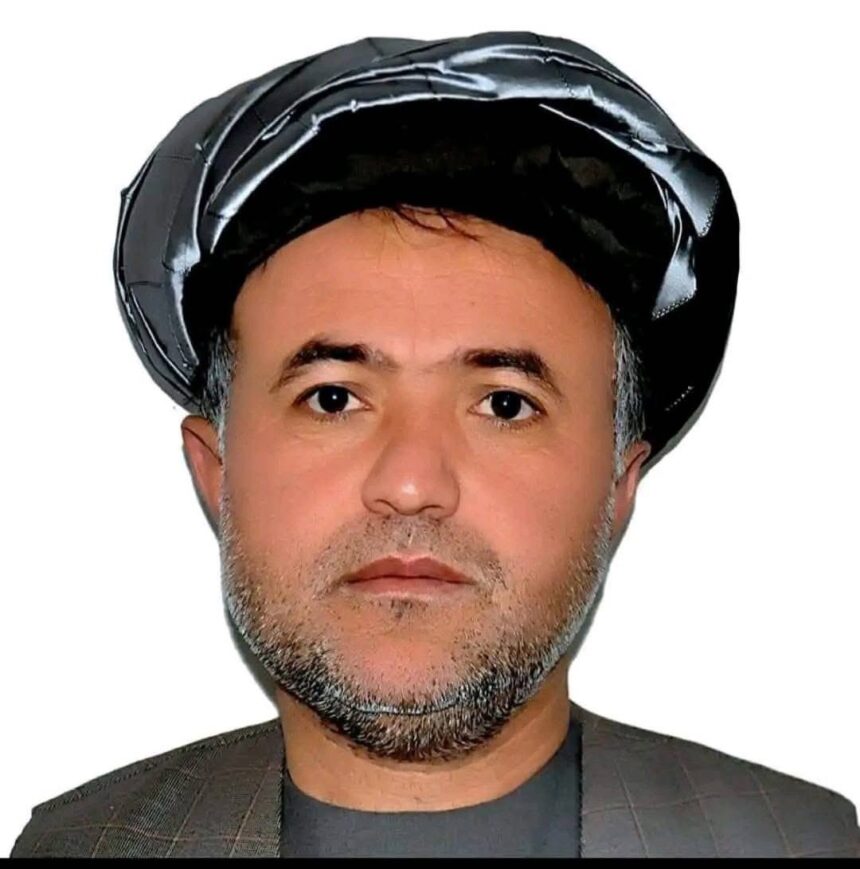RASC News Agency: Local sources have confirmed the targeted killing of Mohebullah Mirzad Bandari, a former member of the Faryab Provincial Council and a long-time political associate of Marshal Abdul Rashid Dostum. Bandari was gunned down in cold blood on Friday evening, July 18, near the outskirts of Maymana, the provincial capital of Faryab, in what appears to be yet another politically motivated assassination under the Taliban’s de facto rule. According to eyewitnesses, a group of unidentified armed men ambushed Bandari’s vehicle while he was traveling through one of the arterial roads on the edge of Maymana. The assailants, whose identities remain unknown, fled the scene immediately after executing the attack. No individual or faction has yet claimed responsibility for the assassination, and as of this writing, Taliban authorities have offered no official statement continuing a pattern of calculated silence that has become increasingly familiar in such cases.
Bandari had sought refuge in Iran in 2021 following the Taliban’s return to power and the collapse of the previous republic. However, he had recently returned to Afghanistan as part of the Taliban’s so-called “Commission for the Return of Former Officials and Soldiers” a deeply controversial and poorly monitored program that ostensibly offers amnesty to former regime affiliates. Sources close to the matter indicate that Bandari had been residing in Ghor province in recent months, but had traveled to Faryab after being invited by the Taliban-appointed governor of Farah. Yet Bandari’s return, like that of many others, seems to have ended not in reconciliation but in retribution. His murder raises profound questions about the credibility and actual intent of the Taliban’s reconciliation initiative, which increasingly appears to be a cynical mechanism to lure ex-officials back into the country under false assurances only to subject them to surveillance, harassment, disappearance, or worse.
Taliban officials in Faryab have refused to comment on the killing or provide any information regarding possible suspects or the motive behind the assassination. This silence is part of a wider and disturbing pattern: in recent weeks, Afghanistan has seen a sharp uptick in the number of suspicious killings targeting former military personnel, intelligence operatives, and political figures from the fallen republic. The perpetrators of these assassinations are rarely identified, and investigations if launched at all lead nowhere. Independent analysts and human rights observers argue that the Taliban leadership, despite its repeated claims of offering “general amnesty,” is either unwilling or complicit in allowing extrajudicial killings to take place. Evidence increasingly points to an orchestrated campaign by hardline Taliban factions to eliminate individuals deemed politically inconvenient or ideologically disloyal to the regime’s vision of an Islamic emirate.
The assassination of Mohebullah Bandari thus serves not only as a tragic loss of life, but also as a stark warning to other former officials contemplating a return under Taliban guarantees. Far from fostering reconciliation, the Taliban’s so-called “invitation” program has become a vehicle for intimidation, revenge, and political cleansing. Under the current climate of fear and impunity, Afghanistan continues its descent into a state where rule of law has been replaced by rule through terror.






